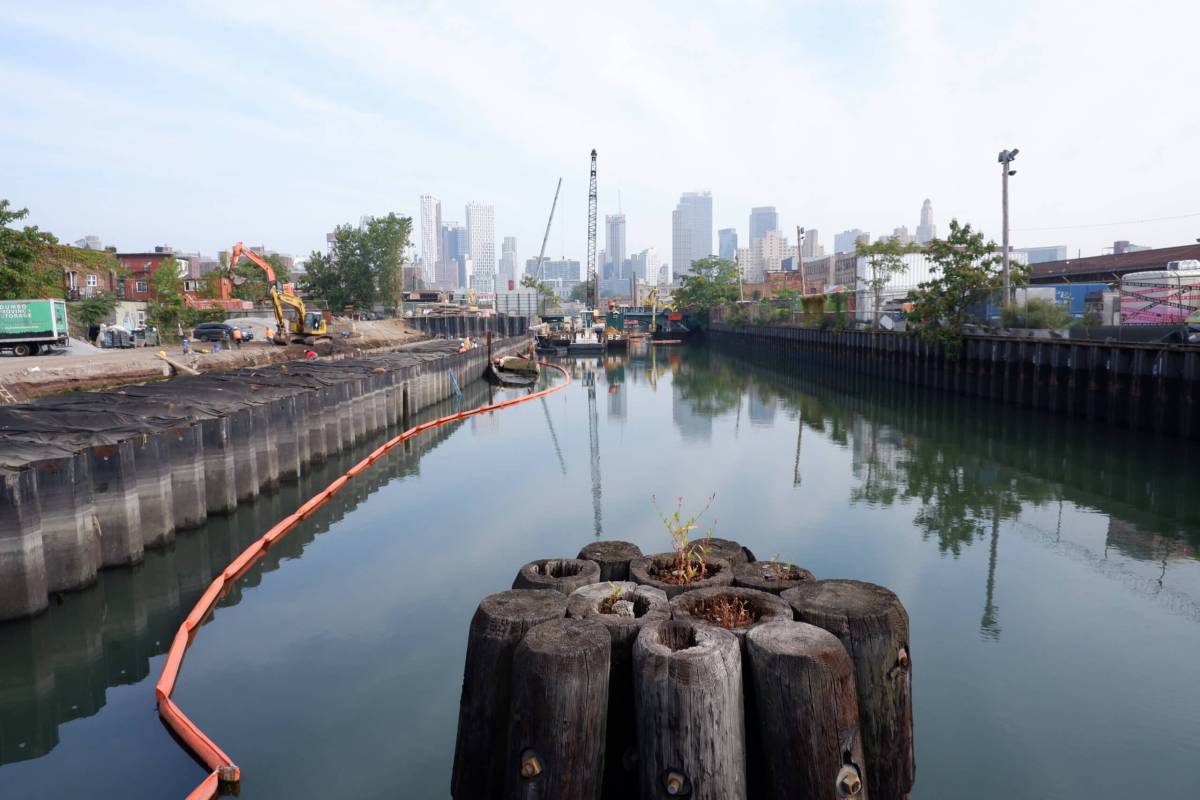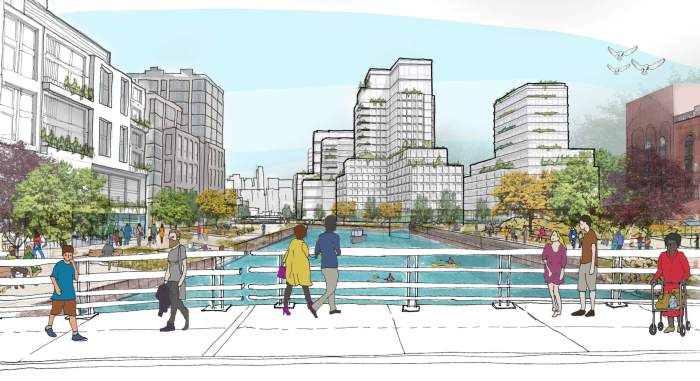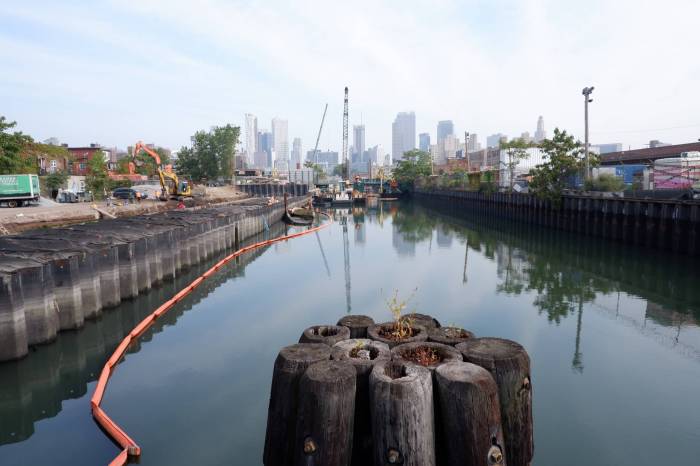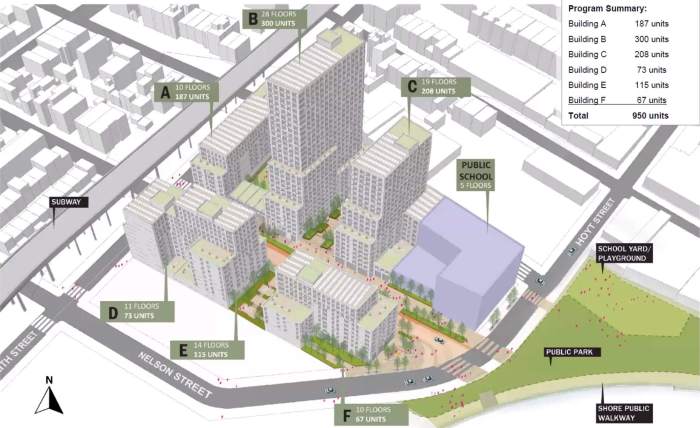The New York City Planning Commission voted nearly unanimously to approve the neighborhood-wide Gowanus rezoning on Sept. 22, pushing the contentious development plan one step closer to reality.
The 82-block land use change, headed by the Department of City Planning, is expected to bring at least 8,500 new apartments to the industrial neighborhood, including 3,000 income-targeted units, as well as new public schools and public open spaces.
Critically, the Department of City Planning says the plan would improve climate resiliency in Gowanus. Updated regulations would require new buildings to better handle flooding, and new infrastructure would hopefully reduce the amount of overflow the neighborhood experiences as sea levels rise and storms become more frequent and intense.
Nine commissioners voted yes, and Commissioner Larisa Ortiz chose to abstain, citing concerns about retail demand.
“I do want to encourage DCP to take a really hard look at projections of future retail demand when planning for communities like Gowanus,” Ortiz said. “This could be a wonderful opportunity to bring the over-retailing and the under-housing of America into better balance. There’s no calculation that any of the new residential that is projected will support the new retail.”
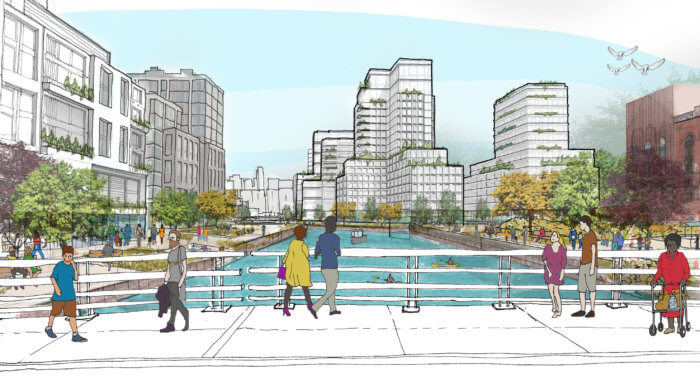
Local reactions to the proposed rezoning have been mixed.
The Gowanus Neighborhood Coalition for Justice — a group of ten local organizations including the Gowanus Canal Conservancy, and residents of New York City Public Housing developments Wyckoff Gardens and Gowanus Houses — set the stage with three non-negotiables if the rezoning is to go forward.
First, they demanded that the city fully fund long-needed capital improvements at the nabe’s two public housing complexes. Second, they argued that new development has a net-zero impact on combined sewer overflow into the canal, and third, an independent “Gowanus Zoning Commitment Task Force,” be created to monitor the rezoning and ensure that commitments are met.
Community Board 2 voted 6-4 against the project in June, while neighboring Community Board 6 approved it with a long list of conditions — including several put forward by the GNCJ.
Borough President Eric Adams rubber-stamped the rezoning last month, emphasizing that his support hinges on the city providing $274 million for the needed improvements at Gowanus Houses and Wyckoff Gardens.
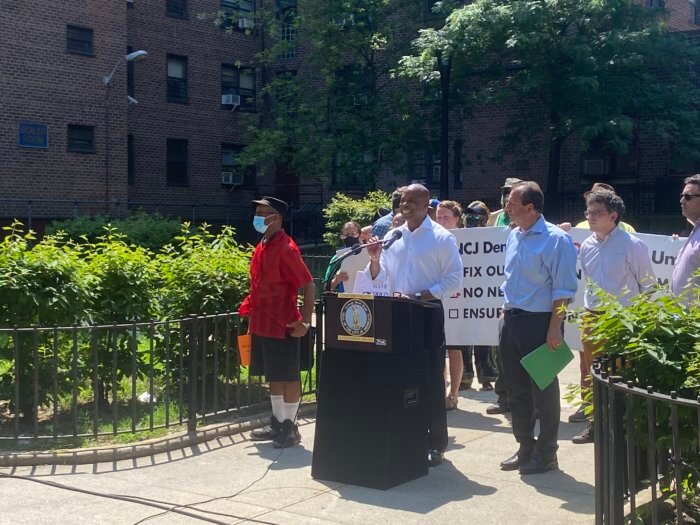
The votes cast by CB2, CB6, and Adams are all advisory, not binding, and ultimately the conditions they set are not enforceable.
The CPC’s approval starts a 50-day review period in the city council, wherein the body will hold a public hearing and ultimately take a binding vote. Unofficially, the council most often follows the lead of the council member who represents the affected district — in this case, Brad Lander of District 39.
Lander and Steven Levin, who represents District 33, have said they will not vote in favor of the rezoning unless it includes the three key requests put forward by the Neighborhood Coalition for Justice. Last summer, the pair criticized city hall’s funding proposals for Wyckoff Gardens and Gowanus Houses.
“Here we are past certification and the city has not come forward with a concrete and clear plan about how it is going to meet the needs of our neighbors in Gowanus Houses and Wyckoff Houses,” Lander said during a June 15 rally. “It is not appropriate to ask any tenant to choose between mold-free bathrooms, functioning elevators, and safe electrical outlets.”
Lander also sent a letter to the federal Environmental Protection Agency in May, asking for a review of the rezoning’s Draft Environmental Impact Statement.
In August, the agency sent a 47-page missive to Marisa Lago, director of the CPC, saying that parts of the DEIS, including storm and wastewater projections, were inaccurate and needed to be reviewed. The letter also noted that the city had been in “significant noncompliance” with EPA orders surrounding the Gowanus Superfund site.
Earlier this month, days before the final environmental statement was released, local electeds Jo Anne Simon and Nydia Velázquez asked that Mayor Bill de Blasio stop the rezoning until a new statement could be drafted.
In the Final Environmental Impact Statement, released on Sept. 10, DCP and the city’s environmental protection department defended their modeling and said that the rezoning will reduce the amount of combined sewer overflow released into the canal.
“I am delighted to vote yes on the Gowanus Neighborhood Plan today,” said the City Planning Commission’s vice chair Ken Knuckles. “This vote is a key milestone in the process of approving this unique and innovative plan, one that is shaped by the Gowanus community and stands for equity and sustainability in this great city of ours.”


